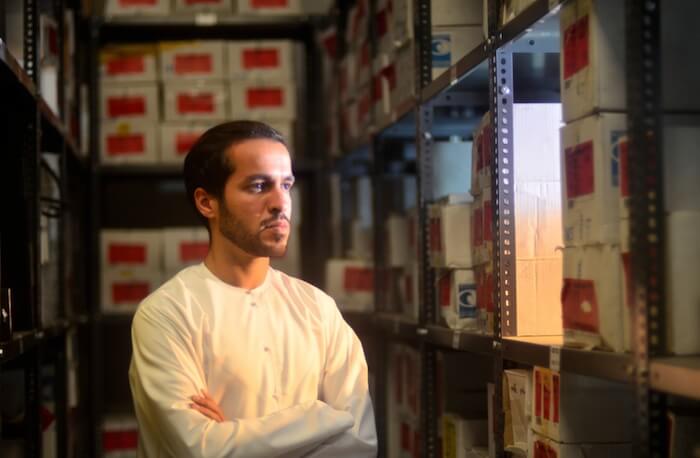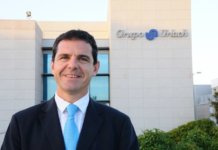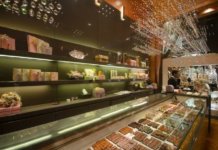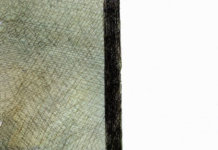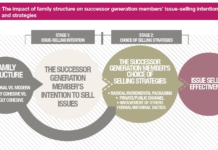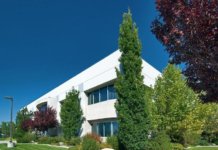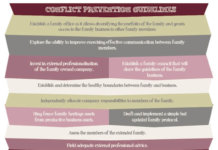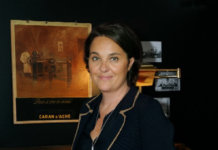Conversation with Khalifa Al Qama, Founder of Opsys, UAE
Opsys is a Dubai-based multi-disciplinary engineering company that was founded by Khalifa Al Qama. He walks into the Opsys office with a serious expression on his face though it quickly breaks into a welcoming smile. While leading up to talking about his business the serial entrepreneur shares that he has known defeat and success in equal measures and has remained indefatigable in his pursuit of excellence. In September 2009 he established Opsys, a company based around an invention that will change the face of fire safety worldwide.
Inspired by the technology, which regulates oxygen levels at sports centres built for athletes preparing for competitions at high altitudes, Opsys has designed a machine that regulates the air so that the ignition of fire becomes impossible. Khalifa Al Qama explained to Tharawat magazine how he assembled a business out of a personal interest in innovation, entrepreneurialism and an undying longing to add value.
[ms-protect-content id=”4069, 4129″]
An entrepreneur’s motives
Khalifa Al Qama is an entrepreneur driven by the world around him. He explains, “I realised that there is so much that’s changing all the time. There are so many opportunities in this world, and there are so many things that could be improved. I started wondering what would make the biggest impact on society and humanity.” With an eye on creating long-term influence Khalifa Al Qama started focusing on what was to become the core of his business. “We do not put enough thought into air even though it is so essential to our existence. I came across this machine which was initially designed to train sports men to climb at high altitudes and get them used to the lower oxygen levels,” Al Qama details. He hands over a match, asking that it be lit. In spite of multiple attempts, no fire is produced. He smiles triumphantly and begins to relate his story:
“I got a call from one of my distributors in the UK for one of my previous companies. He said he had something that he needed to show me. I was taken to an athletic training facility where they were simulating high altitude. We were asked to be the Middle Eastern distributor for the machine that regulated the oxygen levels. As a joke they showed us that the machine could get the oxygen levels to a point where we were still able to breathe comfortably but where no fire could be lit,” says Khalifa Al Qama, greatly intrigued by the staged demonstration. “The athletic training aspect was really important; but the potential to work as a safeguard against fire was huge.” Al Qama immediately began exploring the potential of this intriguing idea.
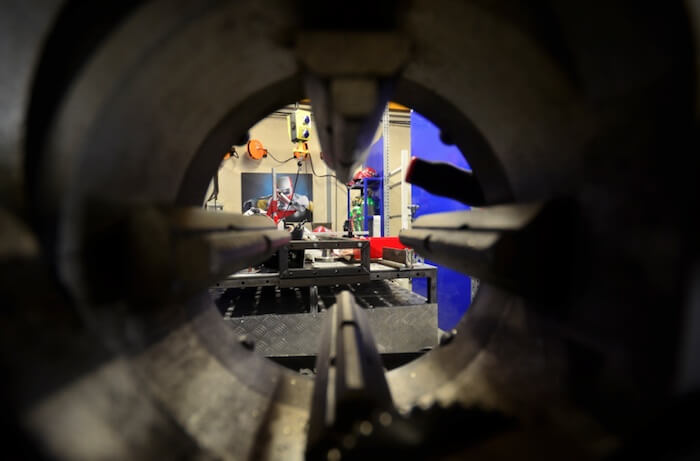
When Khalifa thinks back to how he started exploring this innovation the words come to him spontaneously: “I was so naïve, I considered who could benefit from the fire safety aspect and naturally turned to civil defence. The Head of Civil Defence in the UAE was very encouraging but pointed out that what was needed first was a standard.” Deciding to set the BSI group as a standard certification provider, Khalifa set about finding his competitors in the market in order to work on an industry standard.
“Many people had recognised what this could do for the fire industry. We talked to them and convinced them that a standard would benefit all of us. Instead of six months, it took a year and a half to establish the standard.” Khalifa Al Qama nearly shut down the company twice because of a lack of resources and people attempting to sabotage his efforts. “The people we were competing with were allowed to sell in their own countries, because their rules and regulations allow the adoption of innovation without standards. However, in Dubai we couldn’t even think of doing this without a standard.” His expression hardens as he remembers how close the enterprise came to ending.
Despite the myriad of obstacles encountered, Opsys survived. Al Qama now having created a suitable standard for the product and with the adequate engineers on board decided to produce the machines in the UAE. Just next to Opsys’ state of the art, oxygen-regulated office is the workshop where the magic happens. “We hired all our engineers from the UAE. It’s astonishing the calibre of people that we have here. It took nine months to develop the prototype,” Khalifa sighs as he looks back on the tireless effort involved.
Focus beats diversity
Khalifa Al Qama explains that maintaining focus has largely been the company’s driving force. “You have to make sure that what you do you do well. It’s the details and the execution that make or break things. A lack of focus could completely obliterate companies and products. We have naturally become a multi-disciplinary engineering firm. Our core focus remains to take CAP 9 (Clean Air Protection) to the highest standards for our clients who wish to safeguard their venues from fire. That is going to stay our priority because we are not done. It is an evolution.”
How this process reflects on the Opsys production cycle Khalifa Al Qama explains is via high customisation orders though overall output remains low. “Right now they’re all custom-made, for different sizes of spaces that the customers are required to protect. Most of the system stays the same, but the output changes. We look at what the client needs and we build the machine to service their space. We have put a lot of effort and thought into making sure that the architecture of this machine is scalable, and we are able to produce a stand-alone unit as well as multiple units connected to each other.”
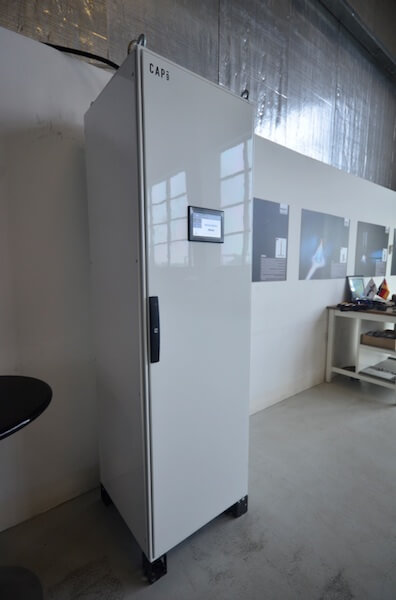
The user-friendly interface
The inner workings of an Opsys oxygen regulator seem a bit technical for the average customer to fully understand, however Al Qama wants his clients to be able to use the machines independent of expert support. “We strongly believe that these machines have to be simple. The user shouldn’t be bothered by what’s happening inside, and what needs to be changed. That usually entails a lot of automation internally and a lot of very heavy components internally and it becomes more expensive to build the machines.”
“The philosophy that we adopted was ‘transparency and simplicity’. I think even the aesthetic of the machine portrays that.” He opens the metal door of the Opsys machine and shows us an interface that appears easy to understand and use. “I felt that we needed to translate people’s user interface expectations which are mostly shaped by smart phones onto our device. Just because it is an industrial product it does not mean that it needs to be ugly.” Al Qama’s face quickly displays a winning smile as he demonstrates the machine’s operability.
The USP “Air”
Opsys machines are able to decrease the oxygen levels in a given space to the sweet spot where it is still agreeable for human beings to breathe, however where lighting a fire has been rendered impossible. Khalifa draws a parallel: “It is the equivalent of the pressure experienced in an Airbus A330. Millions of people are in these aircrafts flying around the world without experiencing any adverse effects. And how many cities are at 2,700 or even 4,000 metres? There are more than 15 million people living constantly at these levels. Humans adapt.”
With Opsys effectively addressing health concerns and offering ground breaking fire prevention measures unforeseen, one wonders why the machines aren’t selling themselves in droves. “The challenge that we’re facing is the lack of industry awareness. It takes a lot of effort to convince people of the relevance of what we do. But it will come in time,” says Al Qama confidently.
How exactly does Opsys plan to convince clients of the relevance of their invention? Al Qama, somewhat triumphant, relates an experience the company underwent with a bank that approached them. “We did an exercise for a bank to prove our product. They had four levels of vaults, and two massive spaces for electronics and documentation. They wanted to know what the advantages of our machine were over using water to prevent a fire. We did all the calculations. It came out in our favour as not only was our machine more efficient financially but it would also avoid the destruction of the bank’s files whereas water would only be used once the damage had already been done.”
Third time is a charm
Opsys is now a successful engineering company and Khalifa’s services are highly in demand. He openly divulges that his first two businesses did not meet with equal success. Despite embarking upon this latest endeavour apprehensively, he credits his goal oriented drive for adding value to the marketplace as the company’s fuel for success. “I think first of all you have to be somewhat insane to do what I have. The first two companies made me aware of what could be achieved when people collaborate. What is a company? It is a collection of people trying to pursue a certain goal. And companies have to add value. We can do anything we want as humans, I truly believe that. I never looked at it as one thing being more difficult than another. I wasn’t after money. Money’s a great enabler as far as I’m concerned. But it’s not the most important thing, at least in my view,” he affirms while leaning back comfortably in his chair.
Entrepreneurial fervour is a key indicator of humanity’s desire to make life better, Al Qama reasons. “Entrepreneurship happens because we humans want to explore our world. We want to understand how things work, and if we can transform these discoveries into products that make our lives a little better, then we do that.
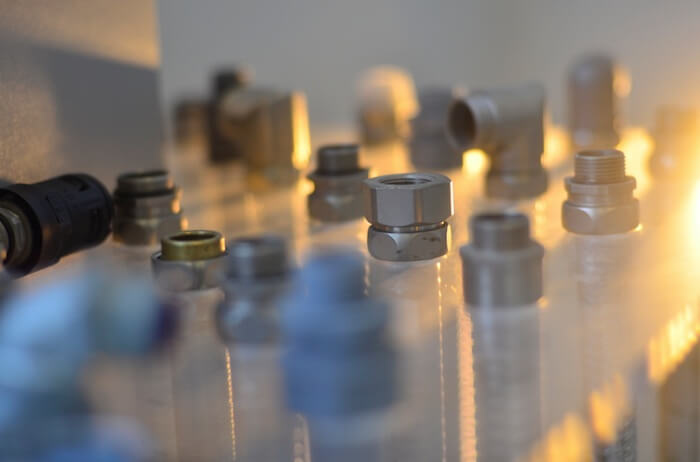
“I’m constantly looking for exchange with other entrepreneurs. We can only become better through exchange and learning from each other and I truly wouldn’t be the entrepreneur that I am today if it wasn’t for my mentors and supportive shareholders. Our technology exists because a lot of other people invented certain technology that enabled this to happen.One day this is going to be insignificant and something better is going to come,” philosophises Al Qama.
While Al Qama does seem to give his competitors some thought, he appears to be less interested in personal contests and more in tune with rivalling the best ideas by contributing more of his own. “I think to survive we have to be paranoid, but what we have to be paranoid about is the important question. I’m paranoid about being the best in this industry. I want to truly add value in ways that other people haven’t until now. And when you add a certain amount of value the profits that you get back are high enough that you can keep up the momentum of innovation. Change is ingrained in our nature as human beings, why should we try and stop it?”
Khalifa believes that young people in the Middle East do not get more encouragement to venture into technological entrepreneurship, a reality he deplores. He accounts for his own defiance of the trend by paying homage to good leadership at home: “My parents allowed me to be whatever I wanted. They allowed me to make mistakes. My younger siblings are now intrigued by what I do and I give them a very honest account of what it is like to be an entrepreneur. They deserve to know the pros and cons. It’s very lonely to be at the top, and that is very important to be aware of.” Here Al Qama pauses, searching for the best answer to relate his following point.
“I had to let go of friends, because I was adamant about the way I wanted to do things, the way I wanted to conduct my life. I had to stop having fun, at a very early stage. I had very few friends that understood and tolerated my lifestyle, and that is natural. I’m very fortunate that now there are more people that I can associate with and call friends. I’m very optimistic about the generation that is coming up now. There is a decent proportion of people who think the same way and that is very encouraging. I hope everyone can find a way to add value.” By way of Opsys Khalifa Al Qama has done just that, lighting a fire where none exists.
Tharawat Magazine, Issue 21, 2014
[/ms-protect-content]


